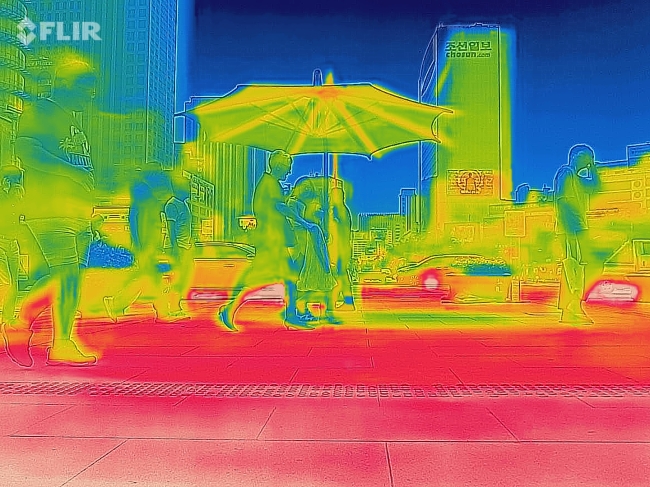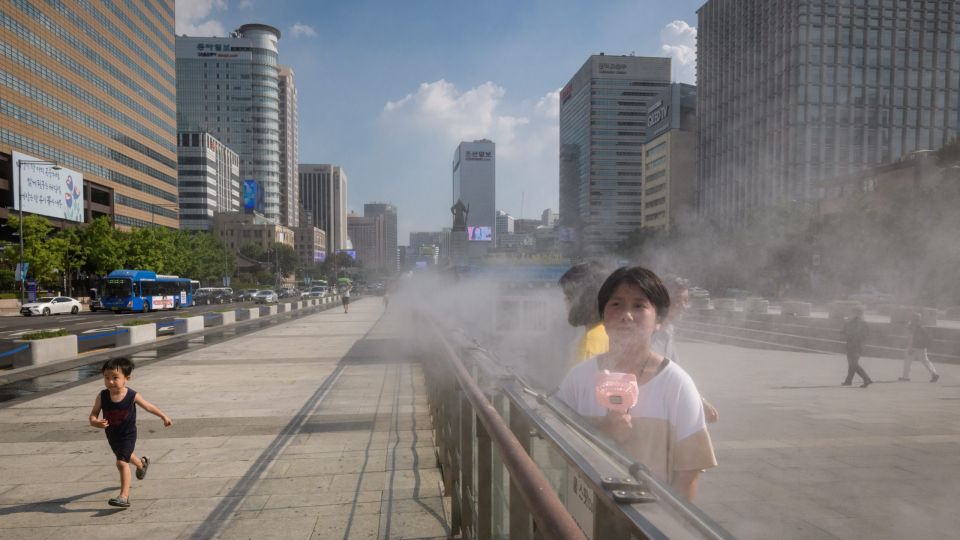August 2, 2018
South Korea sizzled to its highest-ever temperature of 40 degrees Celsius on Wednesday.
The mercury hit 40.3 C in the northeastern town of Hongcheon, Gangwon Province, at 2:20 p.m., marking the highest level since 1907, when the country began to keep weather records, the Korea Meteorological Administration said.
 |
In Seoul, the temperature also soared to its highest level in 111 years.
The previous hottest day on record was Aug. 1, 1942 when the mercury logged 40 C in the southeastern city of Daegu. Tuesday marked only the second time that the temperature has reached that level.
Seoul’s temperature rose to 39.6 C, breaking the previous heat record of 38.4 C set on July 24, 1994.
The temperature in Chuncheon, northeast of Seoul, was 40.2.
The country has been hit by an unusually long heat wave nationwide after the rainy season ended on July 11. High atmospheric pressure from Tibet and prolonged dryness contributed to the extremely hot weather, according to meteorologists.
This year’s summer rainy season lasted for only 16 days, half of the normal average.
Typhoon Jongdari, the 12th of the season, which formed near the island of Guam on July 25 and was forecast to approach the Korean Peninsula via Japan, moved on to the sea off Japan’s southwestern coast before being downgraded to a tropical depression on Sunday.
Another factor in the prolonged heat is easterly winds that blow from the eastern Taebaek Mountains. Warm air flowing down from the mountains pushed up temperatures in a phenomenon called dry foehn.
 |
It is likely that the temperatures in Seoul and other parts of the country will further rise in the coming days.
More than 2,200 people were stricken with heatstroke and heat exhaustion and 28 people died from heat-related ailments between May 20 and July 30, according to data from the Korea Centers for Disease Control and Prevention.
The extraordinary heat has prompted the government and ruling party to seek to designate extreme hot weather as a type of natural disaster and call for measures to ease the burden of rising electricity costs for low-income families and small business owners. (Yonhap)


